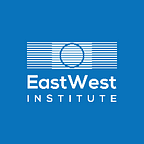Turkey-Iran Rivalry: The Middle East’s New Great Game
We are witnessing the dawn of a new “Great Game” in the Middle East. The turmoil that has engulfed the Middle East since the outbreak of the so-called “Arab Spring” in 2011 brought about the collapse of the regimes in Egypt, Libya, Tunisia and Yemen, as well as catastrophic upheavals in Syria and Iraq. The collapse of state power in the region, the rise and fall of Islamic State (ISIS) and the realignment of tribal structures are just a few of the more immediate consequences.
This ongoing turmoil combined with the perceived waning of great power influence has opened the doors to the gradual reemergence of two regional powers with imperial pasts and contemporary aspirations to restore their glorious heydays: Turkey, the heir to the once might Ottoman Empire, and Iran, the Old Persian Empire.
Both countries have long and well established administrative and governance experience, as well as traditions accumulated through generations and now find themselves at the prospective forefront of new regional opportunities. Arguably, both countries endeavor to extend their spheres of influence by restructuring the most destabilized parts of the Middle East region: Iraq and Syria in the North; and Yemen, which is guarding the southern approaches to the Red Sea in the south.
Naturally, this new regional power rivalry has deepened mistrust between Ankara and Tehran, underlined by the deep historical Sunni-Shia divide pitting Sunni-dominated Turkey against the Shia-dominated Islamic Republic of Iran.
For example, the recent Turkish military activity in Afrin in Northern Syria (Operation Olive Branch), under the pretext of chasing terrorists and checking the Kurds along its southern flank, was met with suspicion by Iran, which saw it as an attempt to infringe on Syria’s territorial integrity and establish a permanent Turkish presence there. Conversely, Turkey has watched with misgiving Iran’s ongoing attempt to establish a land corridor stretching from Iran via Iraq and Syria, both weakened states, to the Mediterranean Sea either in Syria or Lebanon. (This land corridor is sometimes dubbed “The Shia Crescent”.)
Iranian and Turkish interests are also clashing in Northern Iraq, where Iran has encroached on Turkey’s historic and economic interests, especially when it comes to its relationship with the Turkmen minority and the export of natural resources from the oil rich province of Kirkuk. If Iran will manage to establish the intended land corridor to the Mediterranean it will have an impact on Turkey’s economy, which earns revenues from the oil pipelines passing through its territory.
